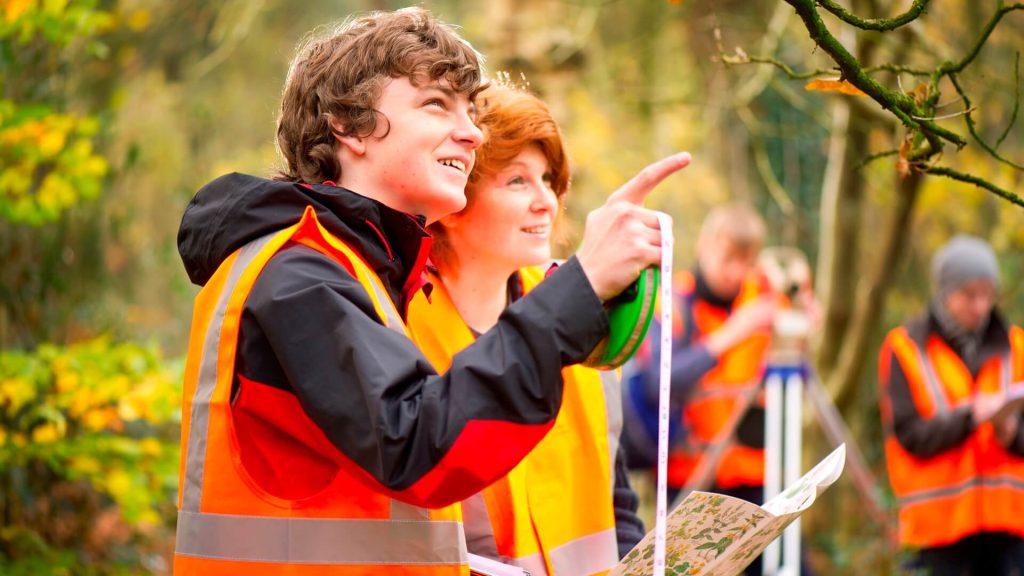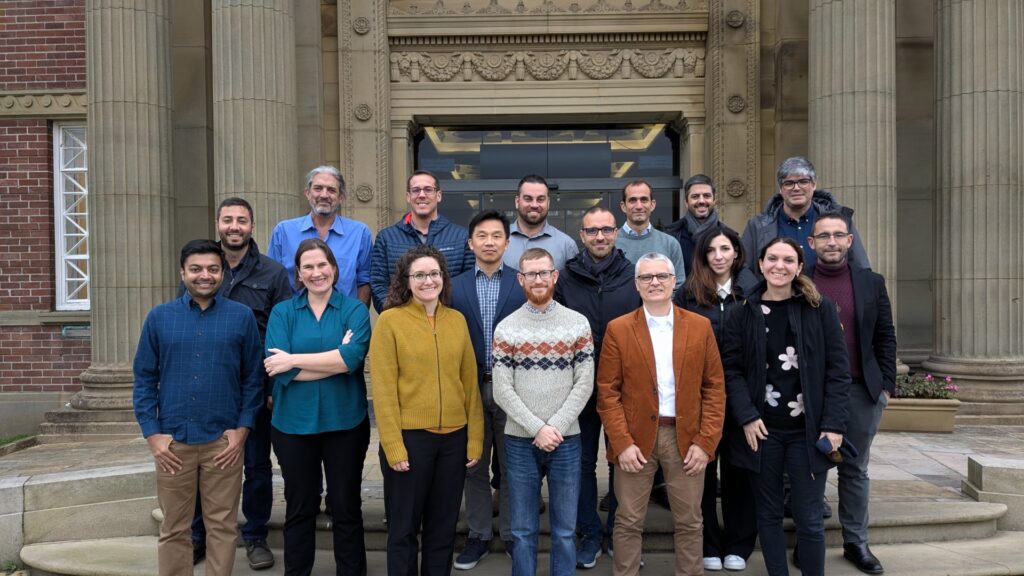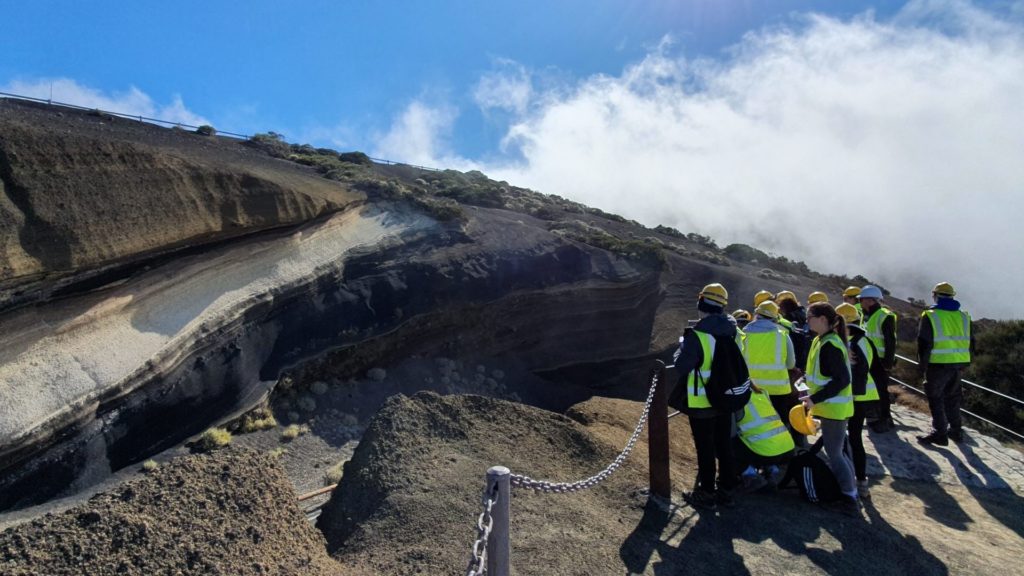Geography BA (Hons)
UCAS code: L701
Pack your bags and discover how human societies, cultures and behaviours are shaping the planet on our BA (Hons) Geography degree. By specialising in Human Geography, you’ll explore the socio-economic, cultural, political and environmental issues facing today’s world.
Overview
| Course length: | 3 years full-time 6 years part-time |
|---|---|
| Start dates: | September 2025 September 2026 |
| Location: | Edge Hill University |
| Example offers: | BBC (A Level) or DMM (BTEC) View full entry criteria |
| Subject(s): | Geography and Geology |
| Faculty: | Arts and Sciences |
| Department: | History, Geography and Social Sciences |
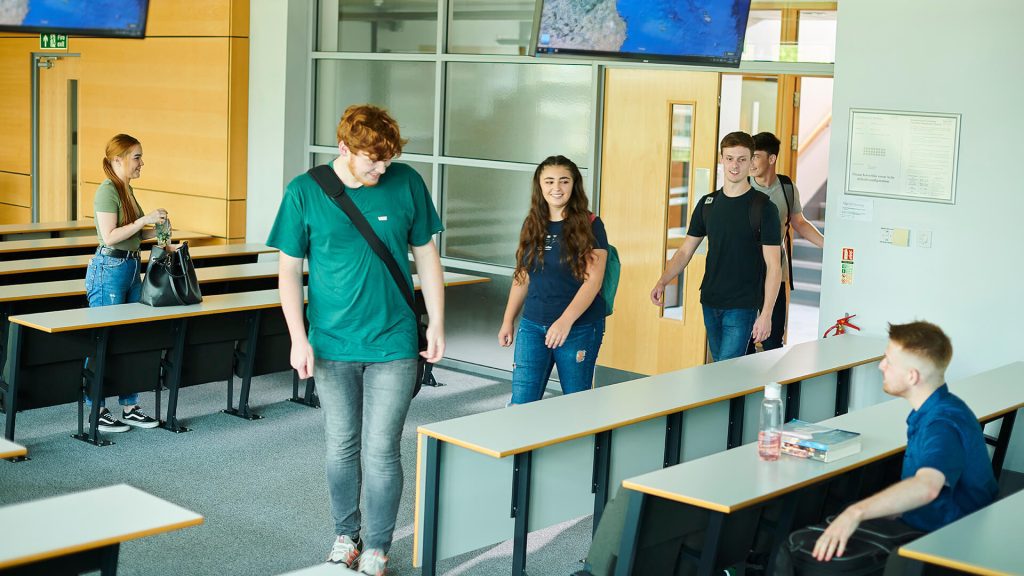
Examine the reciprocal relationships between human societies, cultures, behaviours, and the environment on this Human Geography degree. Exciting UK and international fieldwork opportunities will broaden your geographical knowledge of the Earth’s human and physical environments, landscapes and processes.
Using the latest industry technology on our geography course, you’ll gain experience in Geographical Information Systems (GIS) and remote sensing. And develop your understanding of the human factors – social, economic, political and cultural – that influence life on our planet.
Specialising in Human Geography will help you understand the societal and environmental challenges facing the world. You’ll complete theoretical and practical investigations, and learn about Earth’s changing human geography to better understand key global issues. You can also tailor your geography degree to your interests, with the opportunity to select subject-specific and complementary modules.
We’ll help you to prepare for life after Edge Hill. Take part in specialised careers and employability activities across your three years to help you discover what to do next.
We also have a Geography BSc degree for students interested in the physical aspects of our world and environment. You’ll have options to study modules from this course during your BA degree.
An accredited degree
This programme has been accredited by the Royal Geographical Society (with the Institute of British Geographers). Accredited degree programmes contain a solid academic foundation in geographical knowledge and skills, and prepare graduates to address the needs of the world beyond higher education. The accreditation criteria require evidence that graduates from accredited programmes meet defined sets of learning outcomes, including subject knowledge, technical ability and transferable skills.
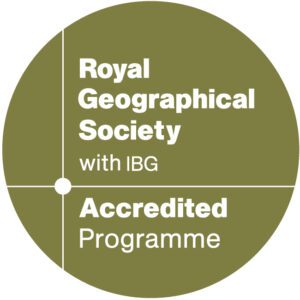 Royal Geographical Society (with IBG)
Royal Geographical Society (with IBG)
Course features
-
Fieldwork
-
International students can apply
-
Learn a language option available
-
Sandwich year option available
-
Studying abroad option available
-
Professional accreditation
What you'll study
Get involved with residential fieldwork and develop practical techniques for handling, analysing and communicating spatial and graphical data. You’ll cover global environmental issues and the relationship between people and places. This includes the human and physical landscapes of Earth. You’ll also develop skills in cartography, research and statistical analysis.
Design a research project with your peers and put this into practice in an international setting. You’ll uncloak digital geographies, remote sensing analysis and learn how to read aerial and satellite imagery to better understand human geographies. In your optional modules, you can explore migration, community resilience and political geographies. There’s also the chance to take on a work placement.
During Year 3 of this BA (Hons) Geography, you’ll complete independent research and have the opportunity to specialise in social, cultural and political geographies. This can range from reviewing socio-cultural issues and migration politics to heritage and culture in the tourism industry. You can also study natural hazards, environmental change, or subject-specific and complementary modules from across the University.
How you'll study
Teaching is through lectures and seminars, laboratory and workshop practical activities, directed independent study, dissertation supervision, tutorials and fieldwork. We place an emphasis on building your employment potential through the acquisition of subject-specific, key and career management skills, as well as the development of knowledge and understanding.
Fieldwork is one of the most beneficial and enjoyable aspects of our programme. Recent fieldwork locations include Cumbria, the Netherlands and Mallorca, as well as local sites.
How you'll be assessed
Methods of assessment display your knowledge and understanding and develop and demonstrate your competence in subject-specific and key skills. All modules are assessed by either coursework only or a mixture of coursework and examination. Coursework typically includes practical portfolios, essays, project reports, field notebooks, individual and group oral presentations and poster presentations.
Who will be teaching you
We have experienced and knowledgeable staff who take pride in the quality of their teaching. All staff are research active, which means that they keep up-to-date with current developments in their areas of interest and pass this knowledge on. We are a friendly and approachable department where you won’t get lost in the crowd and we will respond to your needs.
Where your course includes optional modules, these are to provide an element of choice within the course curriculum. The availability of optional modules may vary from year to year and will be subject to minimum student numbers being achieved. This means that the availability of specific optional modules cannot be guaranteed. Optional module selection may also be affected by timetabling requirements. Some restrictions on optional module choice or combinations of optional modules may apply.
Entry criteria
Typical offer 112 UCAS Tariff points, including Geography, Environmental Science or a related subject. GCSE Mathematics at Grade C or Grade 4 or above, or Adult Numeracy at Level 2 or above, or equivalent, is also required.
Example offers
| Qualification | Requirement |
|---|---|
| A Level | BBC. |
| BTEC Extended Diploma (or combination of BTEC QCF qualifications) | Distinction, Merit, Merit (DMM). |
| T Level | Overall grade of Merit. |
| International Baccalaureate (IB) | We are happy to accept IB qualifications which achieve the required number of UCAS Tariff points. Subject-specific requirements at Higher Level (HL) Grade 5 may apply. |
| Access to Higher Education Diploma | 45 credits at Level 3, for example 15 credits at Distinction and 30 credits at Merit. The required total can be attained from various credit combinations. |
Please note, the above examples may differ from actual offers made. A combination of A Level and BTEC awards may also be accepted.
If you have a minimum of two A Levels (or equivalent), there is no maximum number of qualifications that we will accept UCAS points from. This includes additional qualifications such as Extended Project Qualification (EPQ), AS Levels that haven't been continued to A Level, and General Studies AS or A Level awards.
English language requirements
International students require IELTS 6.0, with a score no lower than 5.5 in each individual component, or an equivalent English language qualification.
If your current level of English is half a band, one band, or one-and-a-half bands lower, either overall or in one or two elements, you may want to consider our Pre-Sessional English course.
Fair Entry Criteria
Our new Fair Entry Criteria is a Contextual Admissions Policy that takes an applicant’s personal and educational background into account. This policy will allow eligible applicants to receive up to a two-grade reduction in their entry requirements for this course. Find out more and see if you qualify.
How to apply
Apply full-time
Read our guide to applying through UCAS to find out more about the application process.
International
Please see our international student pages for further information about how to apply as a prospective international student.
Part-time applications require a direct application to Edge Hill. Please select the year of entry that you wish to apply for.
Should you accept an offer of a place to study with us and formally enrol as a student, you will be subject to the provisions of the regulations, rules, codes, conditions and policies which apply to our students. These are available at www.edgehill.ac.uk/studentterms.
If you join a full time undergraduate degree at Edge Hill University, we will guarantee you the offer of a room in our halls of residence for the first year of your course.
Discover our accommodation
Facilities
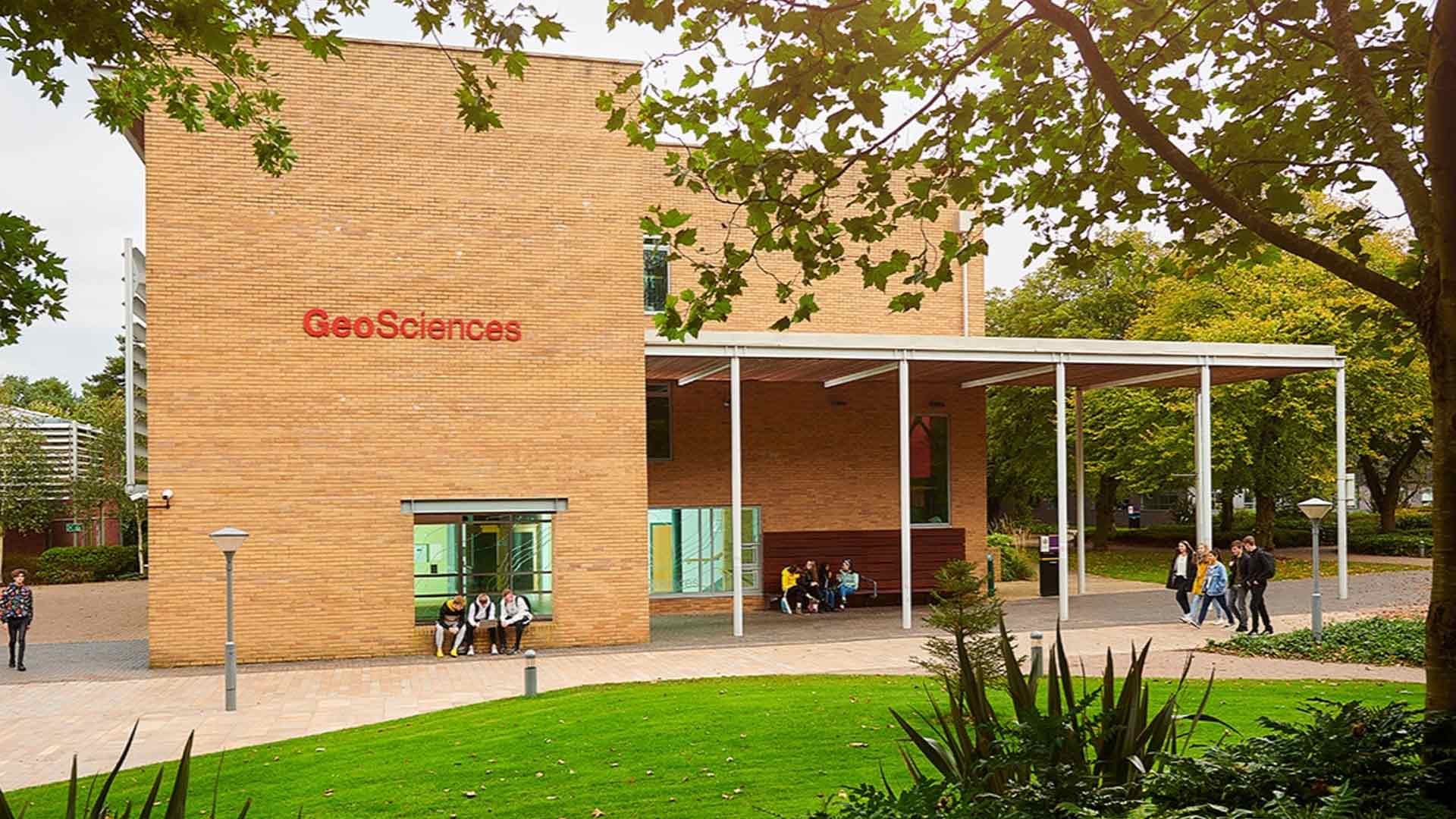 The Department of History, Geography and Social Sciences is based in the Geosciences building. The contemporary facilities combine with a friendly and supportive learning environment to ensure that your studies are a rich and rewarding experience.
The Department of History, Geography and Social Sciences is based in the Geosciences building. The contemporary facilities combine with a friendly and supportive learning environment to ensure that your studies are a rich and rewarding experience.
The GeoSciences building features a large lecture theatre, small group teaching rooms, IT facilities and smaller tutorial spaces. There is also a large social area which encourages a more informal and interactive style of learning.
Where you'll study
Finance
Tuition fees
UK Full-Time
£9,535
a year
UK Part-Time
£79 per credit
for 360 credits
International
£17,000
a year
EU/EEA and Swiss students who have settled or pre-settled status under the EU Settlement Scheme, as well as Irish nationals, may be eligible for the UK tuition fee rate.
Financial support
Subject to eligibility, UK students joining this course can apply for a Tuition Fee Loan from the Government to cover the full cost of tuition fees. UK students enrolling on the course may also be eligible to apply for additional funding to help with living costs.
Scholarships
We offer a range of scholarships, which celebrate the determination, commitment and achievement of our students. Many of our scholarships are awarded automatically. There are some however, where you will need to be involved in an application or nomination process. To find out more about our scholarships and check your eligibility, please visit our dedicated scholarships pages.
Money Matters
Please view the relevant Money Matters guide for comprehensive information about the financial support available to eligible UK students.
EU/EEA and Swiss students who have settled or pre-settled status under the EU Settlement Scheme may be eligible to apply for financial support. Irish nationals can ordinarily apply to Student Universal Support Ireland (SUSI). If you are an EU student who does not have settled or pre-settled status, or are an international student from a non-EU country, please see our international student finance pages.
Your future career
By the end of the degree, you’ll have developed a range of transferable skills useful to both public and private sector organisations. Our graduates are now working with:
- the City of London Corporation
- the Local Government Association
- Cadent Gas
- John West Foods
- Eversheds Sutherland International LLP
Their job titles include project manager, principal town planner, GIS analyst, financial litigation paralegal and lecturer.
Wondering where you could work? Organisations like United Utilities, the Environment Agency, DEFRA and OXFAM regularly recruit graduates with geoscience degrees.
Another option you may want to look at is postgraduate study. Graduates from this degree have gone on to study town planning, teaching, law and GIS.
Course changes
Every effort has been made to ensure the accuracy of this information, however our courses are subject to ongoing review and development. Changing circumstances may necessitate alteration to, or the cancellation of, courses.
Changes may be necessary to comply with the requirements of professional bodies, revisions to subject benchmarks statements, to keep courses updated and contemporary, or as a result of student feedback. We reserve the right to make variations if we consider such action to be necessary or in the best interests of students.
